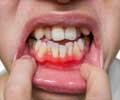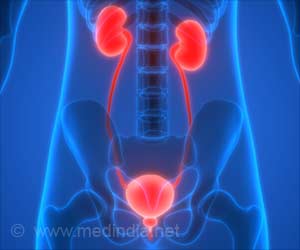Blood protein levels are significantly different in individuals with periodontitis, according to a Umeå University study, pointing to possible disease biomarkers.

The PerioGene North Study Uncovers Serum Proteins Related to Periodontitis
Go to source). “By identifying the blood biomarkers that may be crucial for the development of severe periodontitis, we can proceed to research drugs that specifically aim to slow down the disease progression,” says Pernilla Lundberg, periodontist, and professor at the Department of Odontology at Umeå University, who led the study.
‘Did You Know?
Severe periodontitis affects nearly 10% of the global population, making it one of the most common chronic diseases worldwide. #periodontitis #biomarkers’





Periodontitis involves inflammation of the gums that leads to the breakdown of the supporting tissues around the teeth and can, in severe cases, result in tooth loss. Severe periodontitis affects nearly 10% of the global population, making it one of the most common chronic diseases worldwide. #periodontitis #biomarkers’
Individuals with severe periodontitis are also more often affected by other serious diseases, such as cardiovascular disease and rheumatism, but the mechanisms behind these connections remain unclear.
Blood Proteins Could Revolutionize Periodontitis Diagnosis
Researchers at Umeå University have now shown that individuals with periodontitis exhibit a unique inflammatory protein profile in their blood.The findings indicate, among other things, that severe periodontitis is associated with significantly reduced levels of a protein called EGF -epidermal growth factor, which is crucial for wound healing.
The levels of a protein associated with cardiovascular disease, OLR-1 -oxidized low-density lipoprotein 1, are also significantly lower in individuals with severe periodontitis compared to healthy individuals.
Advertisement
Currently, there are no methods to predict which individuals are at risk of developing severe periodontitis.
Advertisement
Previous research has shown that there is a strong hereditary component behind periodontitis, but the specific genes involved are still unknown. The researchers at Umeå University are now analyzing DNA from all participants in the study to identify genetic changes that may be linked to the development of severe periodontitis.
By combining genetic and biological markers for periodontitis, it may become possible in the future to identify individuals at high risk of developing the disease.
This would also enable tailored treatments that target the specific factors crucial for the development of periodontitis and the associated disease risks.
Reference:
- The PerioGene North Study Uncovers Serum Proteins Related to Periodontitis - (https://journals.sagepub.com/doi/10.1177/00220345241263320)
Source-Eurekalert














